Meet the 2024 ACM Conference speakers! Speakers below are listed alphabetically by last name.
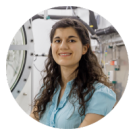
Yarê Baker
Leibniz Institute for Tropospheric Research
Ellie Browne
Associate Professor, University of Colorado Boulder
Ellie is an Associate Professor in the Chemistry department at the University of Colorado Boulder and a fellow of the Cooperative Institute for Research in the Environmental Sciences. Prior, she received her Ph.D. in Chemistry from the University of California Berkeley and was a NOAA Climate and Global Change Postdoctoral Fellow at MIT. Her current research focuses on reduced nitrogen chemistry, new particle formation and growth, organosilicon chemistry, and the chemistry of planetary atmospheres (e.g., Titan, Archean Earth).
Dr. Jing Chen
University of Copenhagen
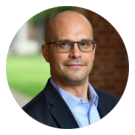
Dr. Pete DeCarlo
Johns Hopkins University
Dr. Peter DeCarlo is an Associate Professor at Johns Hopkins University in the Department of Environmental Health and Engineering in the Whiting School of Engineering. Dr. DeCarlo has a Ph.D. in Atmospheric Science, and a BS in Biochemistry. His research is focused on characterizing the chemical composition of particulates and gases in in the air we breathe both indoors and out. This work enables a more complete understanding of the intersection between energy, air quality, climate, and human health. He also is interested in the intersection of science and policy and was an AAAS Science Policy Fellow at the US EPA. Dr. DeCarlo has served as a representative to the University Corporation for Atmospheric Research (UCAR), as an advisory board member for the Thirdhand Smoke Research Consortium and PA Physicians for Social Responsibility. Dr. DeCarlo has co-authored over 120 peer reviewed publication and has been identified as a highly cited researcher by Clarivate Analytics.

Zachary Decker
Research Scientist, CIRES & NOAA
Zach received his undergraduate degree from New College of Florida and Ph.D. from the University of Colorado at Boulder – both in physical chemistry. During his Ph.D. with Steven S. Brown at NOAA, Zach was awarded the Bronze Medal and Administrator award for his contributions to the FIREX-AQ aircraft campaign to study smoke plumes. Zach then transitioned from measuring aboard the aircraft to measuring behind the aircraft as a Postdoctoral Fellow at the Paul Scherrer Institute in Switzerland. There, he focused on new particle formation from aircraft engine oil emissions. Zach is now a Research Scientist at CIRES and NOAA in Boulder focused on high-altitude aircraft measurements of trace-gasses with a focus in stratospheric processes. Even outside of atmospheric research, Zach tries to maximize his altitude by trail running, hiking and climbing.
Kelsey Doerksen
University of Oxford
Kelsey Doerksen is a Computer Science PhD student at the University of Oxford in the Oxford Applied and Theoretical Machine Learning Group. She is a Data Scientist with UNICEF's Climate and Environment Team, developing the data architecture pipeline of the Children's Climate Risk Index. Kelsey is a Research Affiliate with the NASA Jet Propulsion Lab, working on the Scientific Understanding from Data Science Initiative, developing AI tools for global air quality estimation. Previously, Kelsey was a Satellite Operator at Planet, operating the world's largest Earth Observation Satellite Constellation. She holds a Masters Degree in Electrical and Computer Engineering from the University of Western Ontario, and a Bachelor's in Aerospace Engineering, Space Systems Design from Carleton University.
Kathleen Fahey
Physical Scientist, U.S. Environmental Protection Agency
Kathleen Fahey is a physical scientist in the Office of Research and Development of the U.S. Environmental Protection Agency, working on Community Multiscale Air Quality (CMAQ) model development. Her research focuses on chemistry occurring in the aqueous phase of clouds and aerosols. She holds a B.S. and Ph.D. in chemical engineering from Bucknell University and Carnegie Mellon University, respectively.
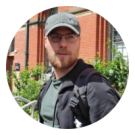
Lauri Franzon
PhD Candidate, University of Helsinki
Sophie Haslett
Stockholm University
Sophie Haslett is a research scientist at Stockholm University, Sweden. She is interested in understanding anthropogenic influences on atmospheric chemistry, and has carried out field measurements using in-situ mass spectrometry in locations from the tropics to the Arctic. Sophie’s current research interests include a focus on understanding the influence of halogens on oxidation processes. She received her PhD from the University of Manchester in 2018.
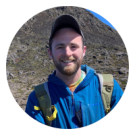
Christopher Jernigan
Post-Doctoral Associate, NOAA & CIRES
Christopher Jernigan is a post-doctoral associate working for Cooperative Institute for Research in Environmental Sciences in collaboration with the NOAA Chemical Sciences Laboratory. His research work has focused on investigating indoor and urban air quality, marine sulfur oxidative mechanisms, and reactions at the gas-aerosol interface. He has a particular interest in characterizing the oxidative mechanisms and fate of atmospheric molecules in pristine environments supported by chemical box models of environmental chamber and flow tube observations.
Scott Kable
University of New South Wales, Sydney
Scott Kable is a Professor of Chemistry and President of the Academic Board at the University of New South Wales, in Sydney. His research spans fundamental chemical physics through atmospheric- and astro-chemistry. The unifying theme of his work is searching for new molecules and chemical mechanisms, sometimes to advance our knowledge of inaccessible environments, sometimes to improve our models of environments closer to hand, and sometimes just because we don’t know. Scott has been recognised many times for his research, teaching and service, including Fellowships of the APS, Royal Society of NSW and RACI, national and university teaching awards, and it turns out that a spectroscopist’s attention to detail also plays well in senior university leadership roles.
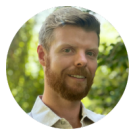
Christopher Kenseth
Post-Doctoral Fellow, University of Washington
Sang-Mi Lee
South Coast Air Quality Management District
Dr. Sang-Mi Lee is the Planning and Rules Manager at the South Coast AQMD. Sang-Mi oversees development of State Implementation Plans, developing emissions inventory for regulatory and numerical modeling purposes and photochemical air quality modeling. She has more than twenty years of experience in air quality and climate change matters at regulatory agency and academic institute. She has a Ph.D. in Atmospheric Sciences from Seoul National University in Korea. Prior to joining South Coast AQMD, she was a research faculty at University of California in Riverside with her research and teaching focused on air quality and control technologies.
Dr. Qinyi Li
Professor, Shandong University
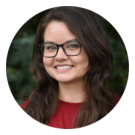
Crystal McClure
Atmospheric Scientist, Sonoma Technology
Dr. Suneeti Mishra
PSI
Suneeti Mishra is a scientist specializing in air pollution research, renowned for her studies on anthropogenic sources and its impacts on human health and climate. She completed her PhD at IIT Kanpur, one of India’s leading institutes, under the mentorship of Prof. S. N. Tripathi. Her doctoral research significantly advanced the understanding of nanoparticle formation and growth in polluted environments, particularly in the heavily polluted region of Delhi, and received extensive coverage in newspapers and media outlets.
Her work was recently highlighted in a paper published in Nature Geoscience, where she investigated the effects of biomass burning on nighttime air pollution in the Indo-Gangetic Plain. This research has been crucial in shaping effective strategies to reduce pollution levels in one of the world’s most polluted regions.
In recognition of her accomplishments, Suneeti was the youngest invited speaker at IASTA 2023, a prestigious atmospheric science conference in India. She also received the Achievers Award for her exceptional contributions to air quality research, particularly for her impactful publication in Nature Geoscience, which has significant implications for public health and environmental policy.
Currently, she is working at PSI (Paul Scherrer Institute) to understand the impact of aviation emissions on human health.

Sara Murphy
Postdoctoral Scholar, UCLA

Dr. Nanna Myllys
University of Helsinki
Dr. Anna Novelli
ICE-3: Troposphere, Forschungszsentrum Jülich
I studied chemistry in the University of Torino in Italy and graduated in Environmental chemistry. I then moved to the Max Plank Institute for Chemistry in Mainz, Germany, to do a PhD in atmospheric chemistry. My work focused on investigating the chemistry of stabilized Criegee intermediates and their impact as oxidants. I became an expert in the measurements of radicals using the laser induced fluorescence. I then moved for my postdoc to the Forschungszentrum Jülich, Germany, to focus on investigating the chemical degradation of biogenic and anthropogenic volatile organic compounds with targeted experiments in the atmospheric simulation chamber SAPHIR. The goal of the experiments is to gain a better understanding on how secondary pollutants such as ozone and secondary organic aerosol are formed. I remained in the Forschungszentrum Jülich and I am now a group leader focusing, among other topics, on a better understanding of the chemistry of peroxy radicals in particular in the expected future chemical regimes (low NOx).
Dr. John Orlando
US Environmental Protection Agency
John Orlando is a Senior Scientist in the Atmospheric Chemistry Observations and Modeling Laboratory at the National Center for Atmospheric Research (Boulder, CO). He received his Ph.D degree in Physical Chemistry at McMaster University (Hamilton, Ontario, Canada) in 1987, and then completed a two year stint as a post-doctoral fellow at the NOAA Aeronomy Laboratory under the supervision of C. J. Howard and A. R. Ravishankara. He moved to NCAR in 1989 where he has been ever since. The primary focus of Dr. Orlando’s research is on the study of the mechanisms of the atmospheric oxidation of volatile organic species, including oxygenated and halogenated species, with a particular interest in the chemistry of alkoxy and peroxy radicals. Dr. Orlando is also actively involved in developing structure-reactivity relationships, and maintaining and updating chemical mechanisms, including the fully-explicit GECKO-A automated mechanism generator and the Mozart suite of mechanisms used in various 3D atmospheric models at NCAR and elsewhere.
Denisia Popolan-Vaida
University of Central Florida
Dr. Denisia Popolan-Vaida is an Assistant Professor in the Department of Chemistry at the University of Central Florida. Her research focuses on understanding the fate of reactive intermediates in complex reactive environments, such as combustion and atmospheric systems. Before joining UCF, she earned a PhD in Physical Chemistry from University of Ulm, Germany and was a Postdoctoral Research Fellow at the University of California, Berkeley and Lawrence Berkeley National Laboratory. Dr. Popolan-Vaida is the co-author of over 35 peer-reviewed scientific publications. She received several awards including DOE Early Career Research award, UCF COS Excellence in Research Award, Feodor Lynen Research Fellowship, DAAD Scholarship (German Academic Exchange Program), Erasmus Scholarship, and EMSPS (European Mobility Scheme for Physics Students) Scholarship.
Kerri Pratt
University of Michigan
Kerri Pratt is a Professor of Chemistry at the University of Michigan, where her research group focuses on field-based chemical measurements of atmospheric reactive gases, aerosols, snow, and clouds in the Polar Regions and wintertime environments. She is a member of the scientific steering committee of the International Global Atmospheric Chemistry (IGAC) Project.
Dr. Andrew Rollins
NOAA
Andrew (Drew) Rollins is a research chemist at the National Oceanic and Atmospheric Administration’s (NOAA) Chemical Sciences Laboratory (CSL). He joined CSL in 2010 after completing a PhD in physical chemistry at the University of California, Berkeley. His research at NOAA is focused on understanding chemical processes occurring in the troposphere and stratosphere that control air quality, climate, and ozone. Research in recent years has centered around the development of novel measurement techniques for sulfur dioxide, nitrogen oxides (NOx) and reactive halogen species, and the deployment of these instruments on ground-based and airborne research platforms to inform chemistry of the stratosphere and marine boundary layer.
Golam Sarwar
Research Physical Scientist, U.S. Environmental Protection Agency

Stephanie R. Schneider
McMaster University
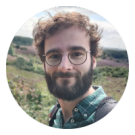
Berend J. Schuit
PhD Candidate, SRON Netherlands Institute for Space Research, GHGSat Inc.
Nash Skipper
US Environmental Protection Agency
Nash Skipper is a Physical Scientist at the US Environmental Protection Agency in the Office of Research and Development. He currently works on topics related to methane, including inverse modeling approaches to inform greenhouse gas emission inventory development. He previously worked as a postdoc at EPA on modeling of atmospheric chemistry and development of the Community Regional Atmospheric Chemistry Multiphase Mechanism (CRACMM) in the Community Multiscale Air Quality (CMAQ) chemical transport model. He holds a PhD in environmental engineering from the Georgia Institute of Technology.
Mingyi Wang
University of Chicago
Mingyi Wang is an atmospheric scientist focusing on aerosol particle formation and its impact on air quality and climate change. Before joining UChicago, he was a Schmidt Science Fellow at Caltech, where he worked on aerosol microphysics in the upper atmosphere using aircraft measurements. Wang received his Ph.D. from Carnegie Mellon University, where he studied the chemical mechanisms that drive particle formation in various environments. Wang's research was recognized with the Sheldon K. Friedlander Award from the American Association for Aerosol Research.

Xuan Wang
Assistant Professor, City University of Hong Kong
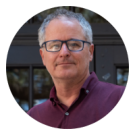
Paul Wennberg
Caltech
Paul is the R. Stanton Avery Professor of Atmospheric Chemistry and Environmental Science and Engineering at Caltech. He studied at Oberlin College and Harvard University. His research interests span from remote sensing of the carbon cycle to detailed investigations of atmospheric photochemistry. Across these disciplines, he focuses on observations - in the lab, in the field, and from space to diagnose the underlying processes that control atmospheric composition.
Jonathan Williams
Max Planck Institute of Chemistry
Prof. Jonathan Williams is an atmospheric chemist. He completed his BSc and Ph.D. at the University of East Anglia, England and after working as a postdoctoral researcher at the NOAA Aeronomy laboratory in Boulder, USA, he became a research group leader at the Max Planck Institute for Chemistry, Germany. His primary research focus is the chemistry of volatile organic compounds (VOC) in the atmosphere and he has participated in many international field campaigns on aircraft, ships and at ground stations. A particular interest has been the emissions and chemistry of the Amazon rainforest. He is editor on several international journals, co-author of the textbook “The Atmospheric Chemist´s Companion” and currently adjunct Professor at the Cyprus Institute, in Cyprus. Recently Prof. Williams has begun researching the VOC emitted by people and the impact of these emissions on indoor chemistry. This later work was awarded the Ig-Nobel prize for Chemistry in 2021.
Lu Xu
Washington University in St. Louis
Lu Xu joined Washington University in August 2023 from University of Colorado, Boulder, where he was a research scientist in the Chemical Science Laboratory for National Oceanic and Atmospheric Administration (NOAA). Previously, he was a postdoctoral scholar, then staff scientist for the Division of Geological and Planetary Sciences at California Institute of Technology. He obtained his PhD degree at Georgia Institute of Technology in 2016.
Dr. Ruifeng Zhang
City University Hong Kong
Dr. Ruifeng Zhang is currently a Postdoctoral Fellow at King Abdullah University of Science and Technology in Saudi Arabia (supervisor: Prof. Chak K. Chan). She obtained her Ph.D. in Environmental Chemistry from the School of Energy and Environment at the City University of Hong Kong in 2022 (supervisor: Prof. Chak K. Chan), following her BSc in Chemical Engineering from Dalian University of Technology in China in 2018. Her research focuses on the transformation of atmospheric aerosol particles and their effects on atmospheric chemistry and air pollution. Dr. Zhang employs interdisciplinary methods to explore photochemical processes within atmospheric particles and at the air-particle interface, such as particulate nitrate photolysis and photosensitization, including laboratory experiments and kinetic model simulations. In 2024, she was recognized as a Rising Star at the John H. Seinfeld One Hundred PhDs Symposium, launched at Caltech.